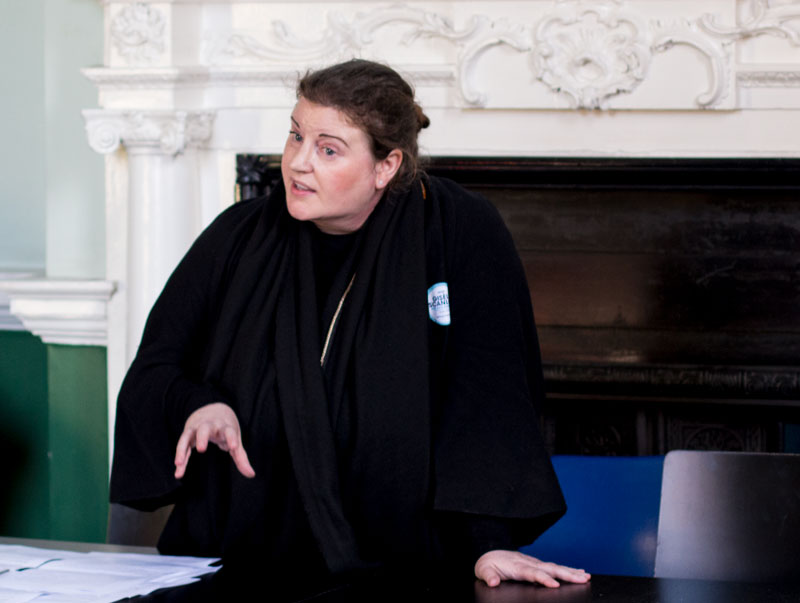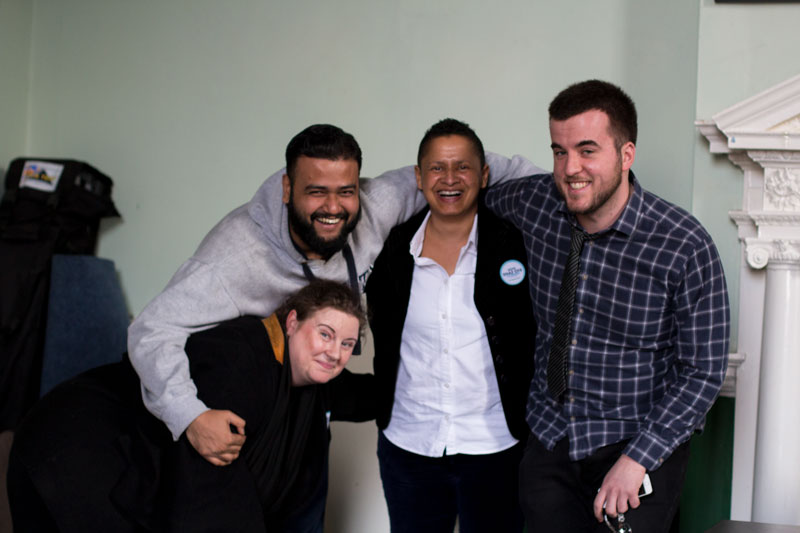Candidates running the Graduate Students’ Union (GSU) sabbatical officer elections emphasised engagement, funding for students and accommodation as the major issues for postgraduate students, in an intimate hustings that was marked by polished performances from candidates. While the candidates were received by a small audience in the GSU Common Room, many more tuned in to watch the event on Facebook live. Those running seemed very aware that this was their one chance to give a speech that would win over voters.
President
The small crowd did little to deter the candidates for President of the GSU, who fought hard to distinguish themselves in a race where the lines separating them are quickly becoming blurred.
Opening his speech with a touching anecdote about helping a student who was running low on funds, Falia displayed an impressive performance that saw him discuss his experience as Vice-President of the GSU and his plans to increase postgraduate engagement
Expressing his fears about the expected increase in postgraduate student numbers – a rise from 5,000 to 8,000 over the next three years – Falia said he would lobby for increased resources and support staff.
Outreach featured heavily in his speech, with Falia describing it as something that the union has “severely lacked” in the last two years. Falia said he wanted more face-to-face interaction with students, aiming to introduce coffee mornings, which he said would be an ideal way of getting postgraduate to connect with one another: “They don’t want anything huge for themselves – they just need an excuse to come out of their rooms, meet people and share a smile.”
Meanwhile, Shaz Oye proved to be Falia’s greatest competitor as she too focused on her experience within the onion as Equality and Diversity Officer and her work within College committees, as well as her work on external campaigns on social issues. and how this activism will help her tackle the many issues that postgraduates are currently facing.
She namechecked what are quickly becoming buzzwords for her campaign – bringing “engagement, vision and inclusion” to the GSU took centre stage. By seeking to create a safe environment for students to express their gender identity, she wants to give them “a sense of belonging”. “I think of the GSU as a family. Under our stewardship, we are your home. A lot of people are out there looking for their tribe; that’s what we are-that’s what we represent”, she said.
While she agrees with Falia that engagement is the greatest challenge facing the union, she aims to tackle the issue in a different way, asking students how this issue could be improved. The main goal of this, she says, is “ensuring we feel valued and respected.”
Finally, Sonne, for his part, struggled somewhat to follow the polished performances of his competitors.

Describing how he would be “good for the job”, his proposal for creating virtual postgraduate feedback on issues through Survey Monkey and regular emails contrasts from that of Falia and Oye, who instead believe that a hands-on approach is the best solution for conquering student disengagement. However, like Falia, he also proposes holding coffee mornings and hosting cinema nights.
Sonne went on to hail his “practically honest” approach to issues, candidly expressing that although he may not be able to build a million houses, he can instead approach the College and can relay the housing situation to the students. If elected, he will bring a more “practical and functional role to the Union”, he said.
On a night where each candidate tackled tough questions of engagement, funding and the health of postgraduate students with relative ease, it should give postgraduates hope for what lies ahead. As Falia pointed out, “no matter who wins, it will be historic”.
Vice President
Gisèle Scanlon, the sole-candidate for Vice-President of the GSU, opened the night with a poised and prepared performance, promising that she “won’t be staying quiet” for post-graduates.
Detailing the many issues that postgraduates face, such as housing, teaching and personal finance difficulties, she vowed to pay attention to the finer details to gain a greater sense of the bigger picture. Research funding, a topic important to every postgraduate student, is sorely needed, she said. Scanlon debuted plans for a lobbying campaign that would fight for a minimum of €21,000 per year for postgraduate students receiving funding to improve their conditions. “We’re not talking about luxury”, she said. “Just the basics to survive.”
From the very beginning of her speech, Scanlon made sure that her audience knew her plans were shared with her running mate, Shaz Oye, who is contesting the GSU presidential race.
Expanding the reach and engagement of the union was also discussed extensively by Scanlon. It’s a problem that plagues students’ unions and all candidates spoke about it. The GSU frequently struggles to attract a high attendance at its events, and this was not far from any of the candidates’ minds.
Scanlon also spoke about the advocacy aspect of the role, promising to represent students and effect change both within and outside College: “What’s going on inside these walls affect what goes on outside these walls and what goes on outside these walls affects what goes on inside these walls. To this, I will bring care, long-term thinking and passion.”
There were no signs of Scanlon faltering when questions of balancing the demanding roles of both education and welfare officer were thrown her way. Instead, she used it to her advantage to highlight her experience in the field of management. Having previously run two companies before returning to Trinity to continue her studies, she maintains that she has the necessary skills to manage the role.
Similarly, the isolation that many off-campus postgraduates feel is something that has not gone unnoticed by Scanlon, who having spoken to them this afternoon, expressed her sympathy for those students who are “lost”. When asked how she hopes to curb this worrying trend, Scanlon replied: “We will sit down at the beginning of our term. We’ll be sitting down and asking what are their needs and how can we help them. We’ll actually very methodically try and find a better solution.”
Indeed, such a confident performance by Scanlon should give postgraduates hope for what lies ahead. Whether it is the burden of accommodation problems, health issues or funding issues, she promises to help students to the best of her ability because after all, these issues are fundamental to the learning experience and students’ experience within Trinity.
Eleanor O’Mahony contributed reporting to this piece.







